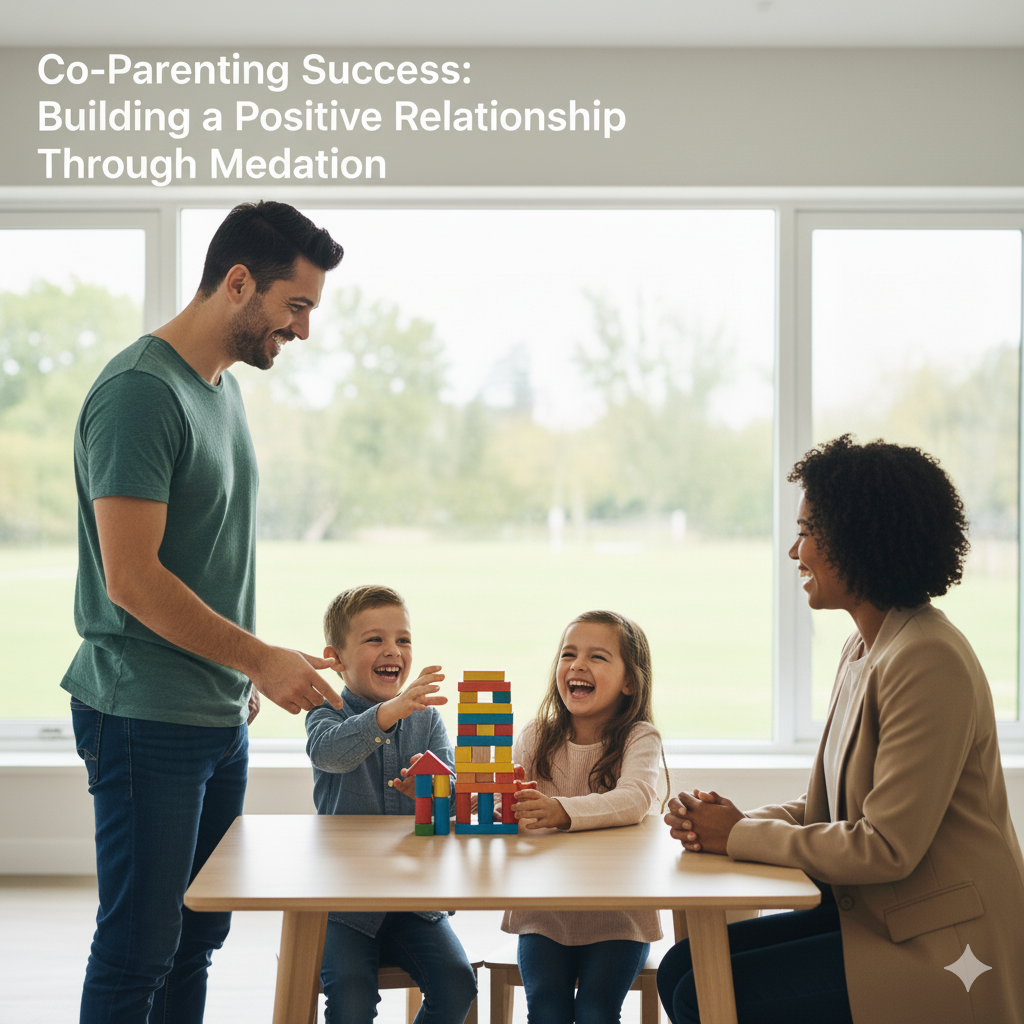
The end of a marriage often feels like the end of a long, difficult road. Yet, for couples with children, it is simply the beginning of a new journey: co-parenting. For many, this prospect is daunting. The very idea of attempting to work together with a person you may no longer trust can trigger a profound fear that every conversation will lead to more fighting, more hurt, and more instability for the family. It is a valid and understandable concern. However, while the journey to an amicable co-parenting relationship may seem out of reach, it is not impossible. With the right tools and approach, you can transition from conflict to collaboration, and mediation is often the key to unlocking that path.
It’s a common misconception that once the legal aspects of a divorce are settled, all conflict should cease. In reality, the day-to-day decisions about children’s schooling, health, and activities can reignite old tensions. Trying to navigate these matters in an unstructured setting—a text message chain or a tense phone call—frequently leads to misunderstandings and renewed arguments. It’s a frustrating cycle that leaves both parents and children feeling exhausted and defeated. Acknowledging this potential for ongoing friction is the first step toward finding a more constructive way forward.
This is precisely where mediation provides a vital service. It offers a structured and neutral environment in which difficult conversations can occur without escalation. Your mediator is a qualified third party, not a judge, but a facilitator whose sole purpose is to guide you and your co-parent towards a mutually acceptable solution. Their presence ensures that dialogue remains respectful and focused. They will steer the conversation away from blame and emotional triggers, and towards a shared focus on the well-being of your children. This shift from an “I vs. You” mentality to a “We vs. The Problem” mentality is foundational to building a positive co-parenting relationship.
Furthermore, mediation isn’t just about reaching a single agreement; it is an opportunity to learn new communication skills that will serve you both for years to come. You will practise listening, understanding different perspectives, and negotiating compromises in a safe space. This structured approach builds a framework for future interactions, ensuring that future disagreements over school holidays or bedtime routines can be handled with clarity and without unnecessary conflict.
The result is a sense of peace. When both parents commit to this process, co-parenting ceases to be a source of stress and becomes a predictable and consistent reality. Children benefit from a stable environment with clear expectations, and parents can begin to heal, knowing they have built a functional partnership for their family’s future. While the path from conflict to collaboration is challenging, it is also deeply rewarding. Mediation offers a respectful, effective way to get there, providing a foundation for a positive, successful co-parenting relationship long after the divorce is finalised.
